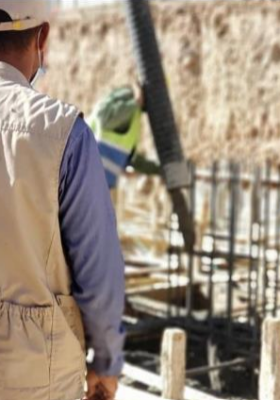Creating Pathways to Future Durable Solutions for IDPs in Yemen
With the conflict in Yemen well into its eighth year, the humanitarian crisis continues to be among the largest in the world. Over 23 million people are in need of humanitarian assistance. The detrimental effects of conflict have been exacerbated by the collapse of the Yemeni Rial, which has led to increased prices for food, fuel, and healthcare. There are approximately 4.3 million internally displaced persons (IDPs), with approximately 1.6 million living in camps. There were over 400,000 new displacements in 2021 primarily because of conflict, but also increasingly due to heavy rains and floods.
An estimated 1.3 million IDPs have returned since the beginning of the conflict, many of whom remain
exposed to protection risks, and face barriers to accessing services and finding sustainable livelihoods. Ongoing conflict, insecurity, the economic situation, natural hazards, and decreased funding for agencies responding to displacement all present significant barriers to the 3 durable solutions settlement options (local integration, return, or settlement elsewhere in the country). Against this backdrop, humanitarian and development actors have begun to consider steps that can be taken to unlock protracted displacement and support durable solutions.
“Promoting Resilience and social cohesion through an integrated response to vulnerable communities in
Yemen” (also known as the Durable Solutions Project) was a 2.5-year project funded by the European
Union that pilots a durable solutions approach to programming in Yemen (reference MIDEAST/2019/405-
730). The Durable Solutions Project (DSP) placed a focus on addressing the immediate needs and longer-term priorities of displacement-affected communities. The project was implemented by an ACTED-led
consortium in partnership with Care, the Danish Refugee Council (DRC), the International Rescue
Committee (IRC), the Norwegian Refugee Council (NRC), and Search for Common Ground in Lahj and
Dhamar governorates. With the project ending in November 2022, it was an opportune moment to
document learning from the project to better understand how actors responding to displacement in
Yemen can implement programming that contributes to durable solutions for IDPs.
Read our Research Report here
Download